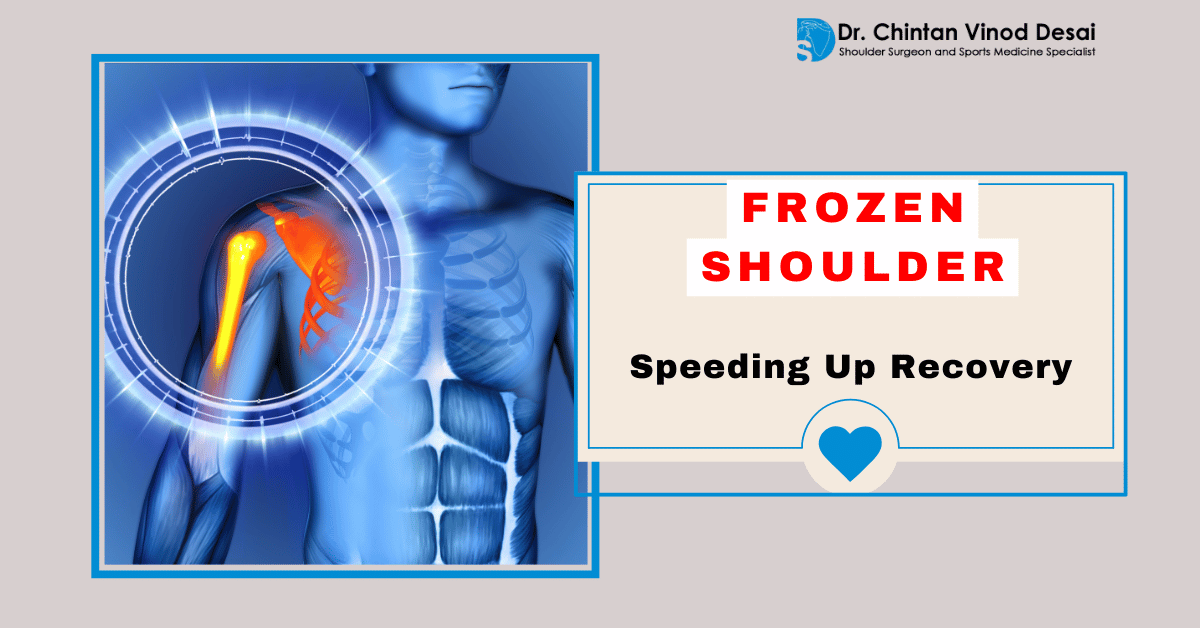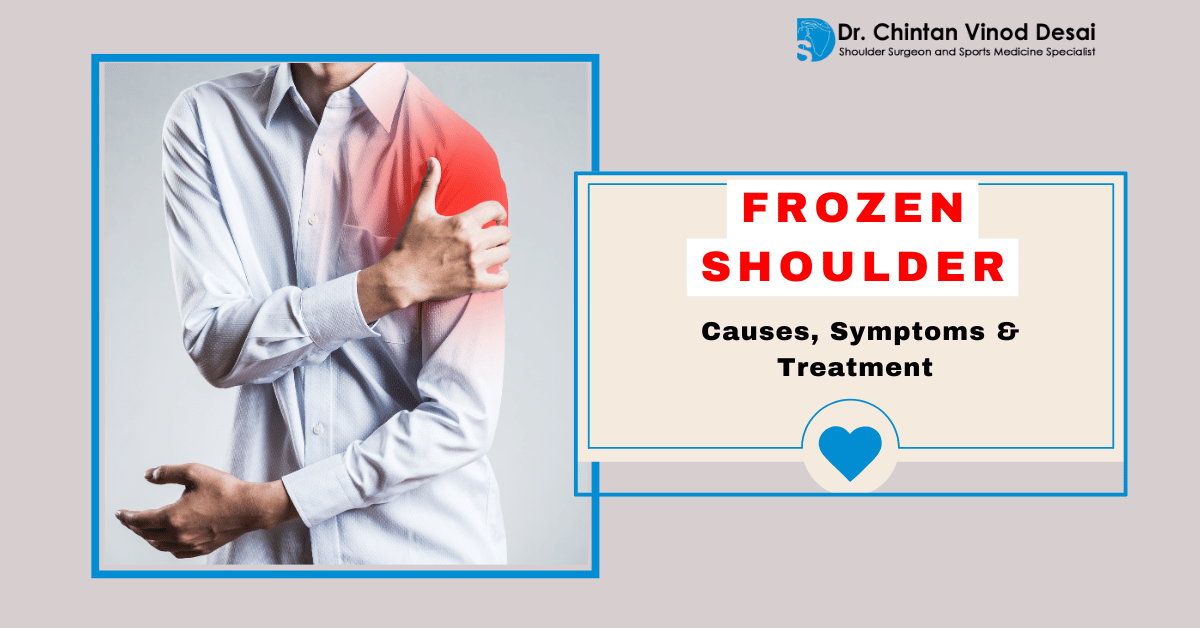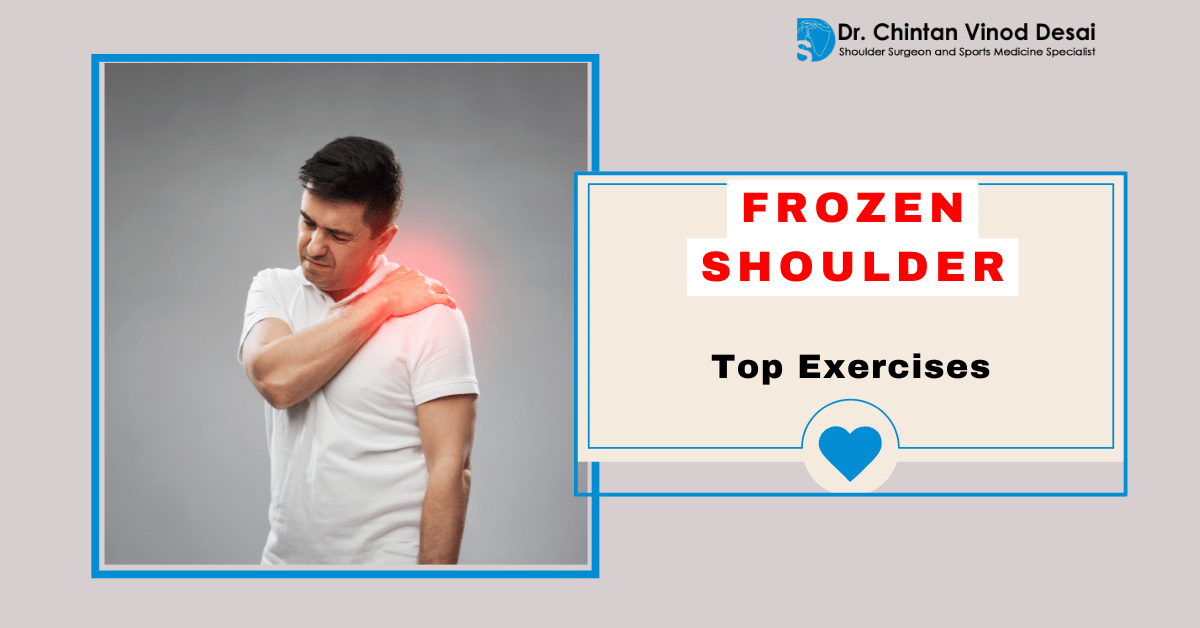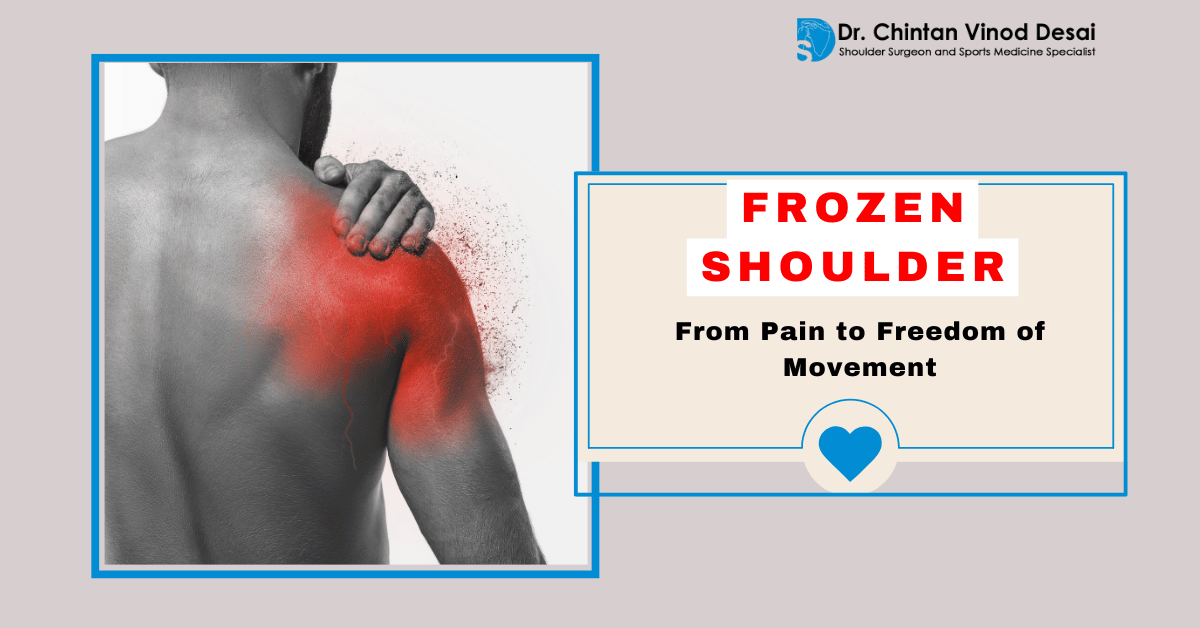Frozen shoulder, medically known as adhesive capsulitis, is a condition characterized by stiffness and pain in the shoulder joint. It typically develops gradually and can severely limit a person’s range of motion. Understanding the duration of frozen shoulder and the factors that influence its timeline can help you manage the condition better and set realistic expectations for recovery. This blog will explore the various stages of frozen shoulder, the factors that affect recovery time, and tips for faster recovery.
What is Frozen Shoulder?
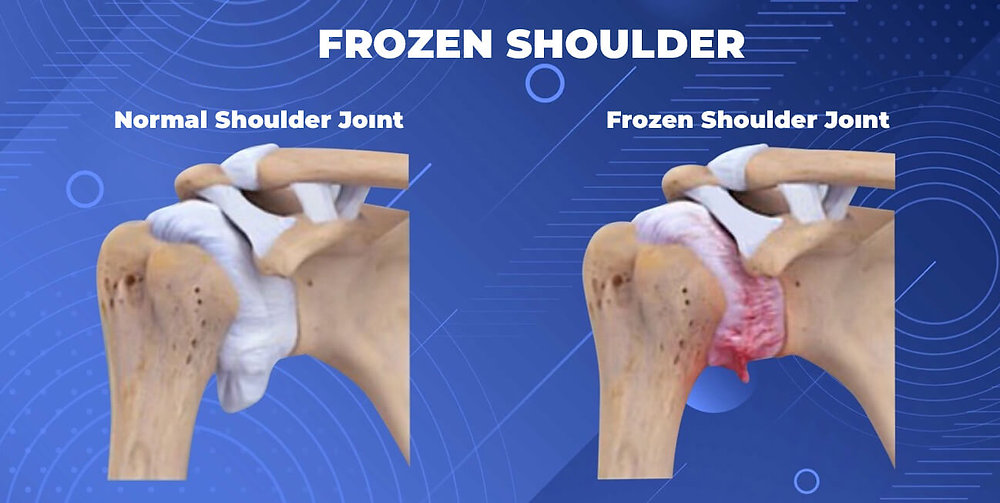
Frozen shoulder is a condition where the shoulder joint becomes painful and stiff. This happens when the capsule surrounding the shoulder joint thickens and tightens, restricting movement. The cause of frozen shoulder is not always clear, but it is often associated with certain medical conditions, such as diabetes, or injuries that cause the shoulder to remain immobile for an extended period.
While frozen shoulder can affect anyone, it is more common in people between the ages of 40 and 60, especially women. It’s essential to recognize the symptoms early to seek appropriate treatment and alleviate the pain. But the big question is, how long does frozen shoulder last, and what factors can influence its duration?
Understanding the Phases of Frozen Shoulder
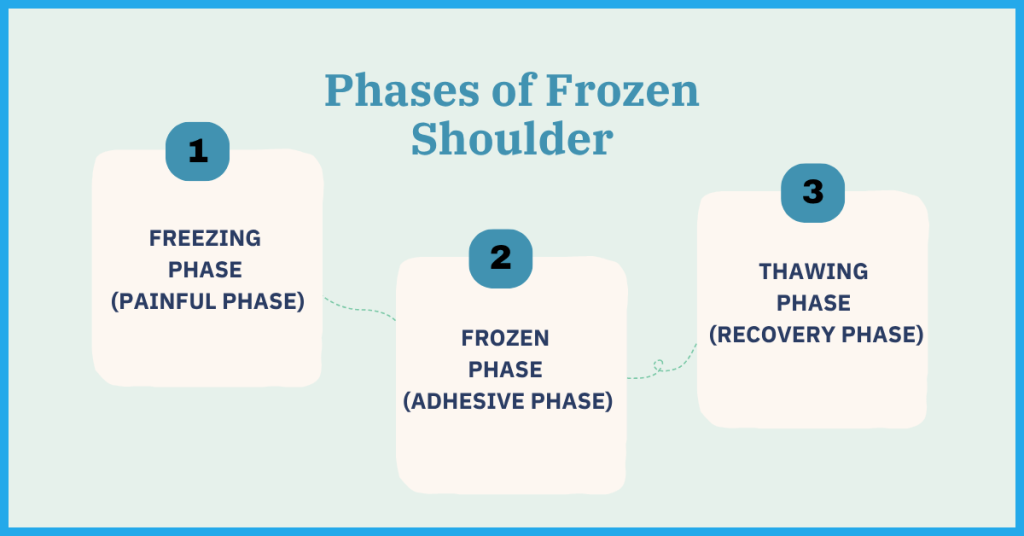
Frozen shoulder develops in three main phases, and each phase affects the duration of the condition.
- Freezing Phase (Painful Phase):
- Duration: 6 weeks to 9 months.
- In this stage, you experience gradual pain and stiffness in the shoulder. The pain often worsens at night and can become intense, making it difficult to sleep. The shoulder becomes less mobile as the swelling increases.
- Duration: 6 weeks to 9 months.
- Frozen Phase (Adhesive Phase):
- Duration: 4 months to 6 months.
- The pain may begin to subside, but stiffness remains. This phase is often the most challenging, as the range of motion in the shoulder becomes significantly limited. Simple tasks like reaching overhead or behind the back become nearly impossible.
- Duration: 4 months to 6 months.
- Thawing Phase (Recovery Phase):
- Duration: 6 months to 2 years.
- During this phase, shoulder mobility gradually returns. The stiffness reduces, and the range of motion improves. Although recovery might be slow, the pain significantly decreases.
- Duration: 6 months to 2 years.
The total duration for recovery from frozen shoulder typically ranges from 1 to 3 years. However, recovery can be quicker or slower based on various factors.
Factors That Influence How Long Frozen Shoulder Lasts
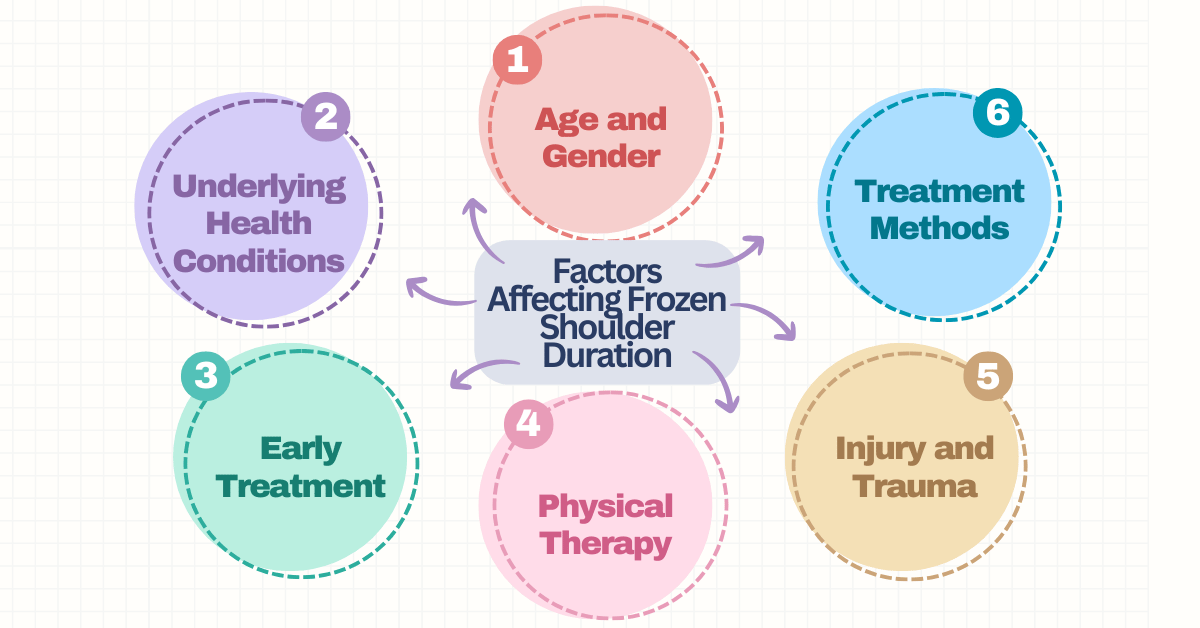
- Age and Gender:
Frozen shoulder is most common in individuals aged 40 to 60 years, and it affects women more than men. Age and gender can impact how long the condition lasts. Older individuals may experience a longer recovery period. - Underlying Health Conditions:
Health conditions like diabetes, thyroid disorders, and cardiovascular diseases are often linked to frozen shoulder. If you have diabetes, you may experience a longer and more painful recovery process. Managing these conditions effectively can help shorten the duration of frozen shoulder. - Early Treatment:
Early intervention can reduce the severity of the condition and speed up recovery. If frozen shoulder is diagnosed and treated early, the symptoms can be alleviated more quickly, and recovery may take less time. - Physical Therapy:
One of the most effective ways to shorten the duration of frozen shoulder is through physical therapy. Physical therapy helps to increase mobility, relieve pain, and improve the range of motion. If physical therapy is started early and followed consistently, it can significantly reduce recovery time. - Injury and Trauma:
In some cases, frozen shoulder develops after an injury or trauma, especially if the shoulder has been immobilized for an extended period. If an injury caused the frozen shoulder, the recovery time might be longer as the body works to heal both the injury and the condition. - Treatment Methods:
Treatment methods like corticosteroid injections, pain relief medications, and even surgery in severe cases can influence how long frozen shoulder lasts. Non-invasive treatments like cold and heat therapy, along with stretches and strengthening exercises, tend to be the most effective.
How to Manage Frozen Shoulder and Speed Up Recovery
While there is no magic cure to completely eliminate frozen shoulder, certain steps can speed up your recovery and make the process less painful:
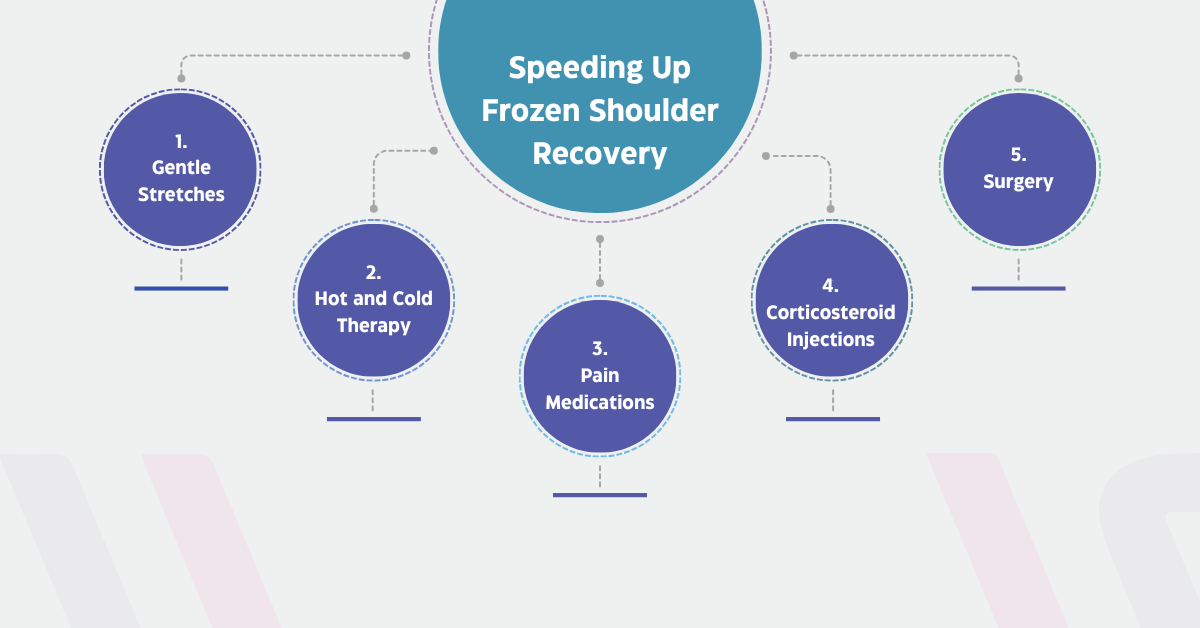
- Gentle Stretches:
Performing gentle stretches can help reduce stiffness. Work with a physical therapist to learn which stretches are most beneficial. Avoid overexerting yourself, as this can worsen the pain. - Hot and Cold Therapy:
Applying heat can help relax the muscles, while cold therapy can reduce inflammation. Alternating between the two can provide relief and improve mobility. - Pain Medications:
Over-the-counter pain medications like ibuprofen can help alleviate pain and inflammation. In some cases, your doctor may recommend stronger prescription medications or injections to help manage pain during the freezing phase. - Corticosteroid Injections:
If pain is severe, your doctor may recommend a corticosteroid injection. This injection can reduce inflammation and provide relief, making it easier for you to start physical therapy. - Surgery:
Surgery is typically a last resort when other treatments have not been effective. Options include shoulder manipulation, where a doctor moves the shoulder joint under anesthesia to break up the adhesions, or shoulder arthroscopy, a minimally invasive procedure to remove scar tissue.
Doctor Introduction
Dr. Chintan Vinod Desai is a consulting Shoulder Surgeon in Mumbai, specializing in shoulder conditions, including frozen shoulder, impingement, rotator cuff tears, shoulder arthritis, and calcific tendonitis. With extensive experience in performing the latest and most advanced shoulder surgeries, Dr. Desai is highly regarded for his expertise in providing tailored solutions for shoulder-related issues. His clinics in Tardeo, Parel, Dadar, Mumbai Central, Lalbaug, Santacruz, and Mulund offer high-quality, patient-focused care to those experiencing shoulder pain and discomfort.
FAQs
- What causes frozen shoulder?
- Frozen shoulder can be caused by an injury that limits the shoulder’s movement or prolonged immobility due to surgery, illness, or other factors. Conditions like diabetes and thyroid disorders can also contribute to its development.
- Frozen shoulder can be caused by an injury that limits the shoulder’s movement or prolonged immobility due to surgery, illness, or other factors. Conditions like diabetes and thyroid disorders can also contribute to its development.
- Can frozen shoulder go away on its own?
- In many cases, frozen shoulder will eventually resolve on its own, but the recovery process can take a few years. Treatment can help speed up recovery and alleviate pain.
- In many cases, frozen shoulder will eventually resolve on its own, but the recovery process can take a few years. Treatment can help speed up recovery and alleviate pain.
- How long will it take to recover from frozen shoulder?
- The recovery time varies. It typically takes 1 to 3 years, depending on the severity of the condition and the effectiveness of the treatment.
- The recovery time varies. It typically takes 1 to 3 years, depending on the severity of the condition and the effectiveness of the treatment.
- What are the symptoms of frozen shoulder?
- Symptoms include pain, particularly at night, stiffness in the shoulder joint, and limited range of motion, making activities like reaching overhead or behind your back difficult.
- Symptoms include pain, particularly at night, stiffness in the shoulder joint, and limited range of motion, making activities like reaching overhead or behind your back difficult.
- When should I see a doctor for frozen shoulder?
- If you experience persistent shoulder pain and stiffness that limits your daily activities, it’s important to consult a doctor, especially if the symptoms last for several weeks.
- If you experience persistent shoulder pain and stiffness that limits your daily activities, it’s important to consult a doctor, especially if the symptoms last for several weeks.
Conclusion
Frozen shoulder can be a frustrating condition, but it’s important to remember that with the right treatment, recovery is possible. By understanding the phases of the condition and the factors that affect recovery, you can better manage your symptoms and seek timely treatment. Whether through physical therapy, medication, or in some cases surgery, there are ways to expedite recovery and regain full shoulder function. If you’re dealing with frozen shoulder, consulting a specialist like Dr. Chintan Vinod Desai can provide you with the best treatment options to help you recover faster and get back to your daily routine.

